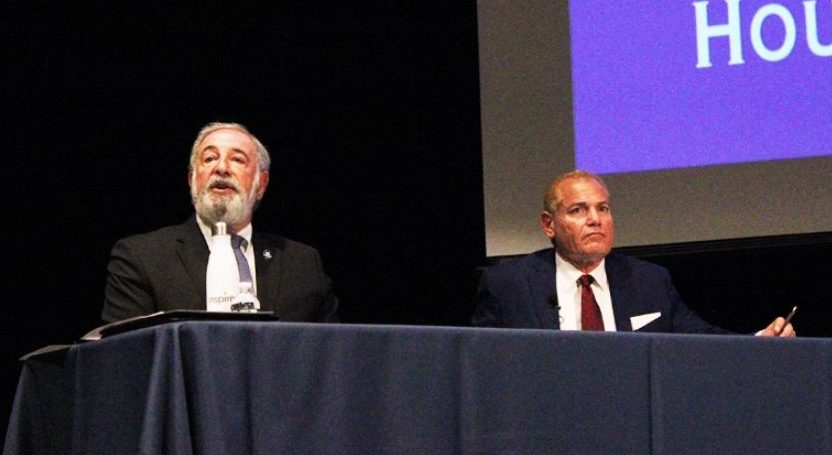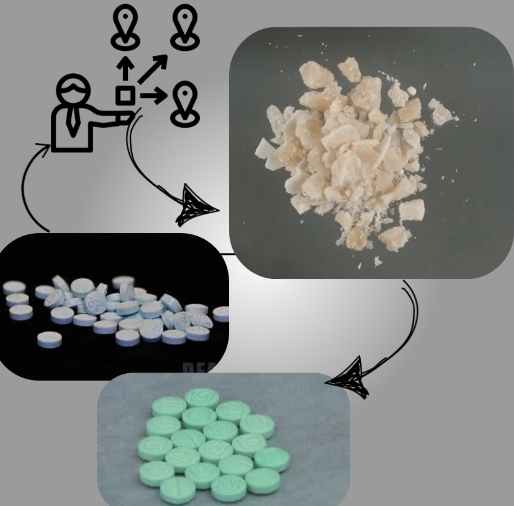In an Oct. 13 Inklings poll of 50 Staples students, 100 percent said they own at least one Apple product and use it on a daily basis for assignments, communication, productivity, games, or music.
On Oct. 5, Steve Jobs, the man behind these popular products, passed away.
“I was saddened by his death,” said Biology teacher Kevin Glass, who works part-time as an Apple programmer. “It certainly was not a surprise, but it still came as a shock. Even though I never actually met the man, I felt like I knew him because of the things he created.”
Jobs Throughout the Years
Steve Jobs was the co-founder and former CEO of Apple Inc. Born inSan Francisco,Calif.onFeb. 24, 1955, Jobs was adopted by Clara and Paul Jobs.
He enrolled atReedCollege, but dropped out after six months, spending the following 18 months participating in creative classes.
In 1976, he created Apple Computers with Stephen Wozniak from his family’s garage.
According to ABC News, as Apple Computers grew, Jobs hired John Sculley, head of Pepsi-Cola, to help run the company as a chief executive.
In 1984, the Macintosh computer was released, but faced competition with IBM, ultimately producing disappointing sales.
Differences in opinion for the future spurred conflict between Jobs and Sculley. Apple’s Board of Directors sided with Sculley, and ultimately decided that Jobs was hurting the company. He was fired in 1985.
“I didn’t see it then, but it turned out getting fired from Apple was the best thing that could have ever happened to me,” Jobs said at his acclaimedStanfordUniversitycommencement speech in 2005. “The heaviness of being successful was replaced by the lightness of being a beginner again, less sure about everything. It freed me to enter one of my most creative periods of my life.”
He later created a new software company called NeXT, Inc. and collaborated to establish Pixar Animation Studios. In 1997, Apple bought NeXT, Inc., and Jobs returned to his original position as CEO of Apple. His reinstitution helped bring Apple to its current fame.
In 2003, Jobs was diagnosed with pancreatic cancer. Although his seemingly successful operation removed the pancreatic tumor, his health continued to decline.
In 2009, Jobs received a liver transplant, but his condition worsened.
According to the International Business Times, Jobs resigned as CEO on Aug. 24.
“I have always said if there ever came a day when I could no longer meet my duties and expectations as Apple’s CEO, I would be the first to let you know,” wrote Jobs in his resignation letter. “Unfortunately, that day has come.”
On Oct. 5, Jobs passed away at the age of 56.
Staples Responds
In spite of this tragedy, Jobs’ death has not lessened Staples students’ opinion of his impact.
“Jobs is one ofAmerica’s great geniuses,” said Marcus Russi ’13, a member of the Computer Club. “He’s also a person we can relate to: the failed businessman, the college dropout, the entrepreneur, the cancer patient, who despite such predicaments went on to build a company that changed the world.”
Even though Jobs is gone from this world, he has left an everlasting imprint on our society.
“Digital communication is instant and pervasive,” said Glass, who says he cannot think of a major event in the last 10 years of his life that he has not instantly shared with an Apple product. “Governments are being toppled with the aid of products like the iPhone, Facebook and Twitter. Today, a vast majority of my students do their work on an Apple product.”
Although many are thankful for the impact Jobs had on modern-day society, some students have expressed concern of the future of Apple.
“Steve Jobs was a unique innovator. He was someone who could figure out what people wanted before they knew themselves,” said Sasha Podolsky ’13, an Apple fan and technology enthusiast. “The real question is: will Apple be able to preserve its reputation without Jobs at the helm?”
Russi said Jobs helped Apple build the reputation of a creative and advanced company.
Jobs proved that a combination of technology and excellent design resulted in products with both aesthetic and economic value.
“He was a stickler for the details of the user experience,” Glass said. “That is what separates Apple products from everything else.”
There is uncertainty about the effect his death may have on new technologies to come. Already, there has been a divide in reception for the newly-released iPhone 4S. According to the International Business Times, fans were underwhelmed by the release due to higher expectations, citing a want for a more significant difference between the iPhone 4 and the iPhone 4S as the primary reason for disappointment.
“The technology industry might not be as innovative without Jobs,” Podolsky said. “However, right now, Apple is stocked with many of Steve Jobs’ pre-planned ideas for the next few years.”
As stated by the LA Times, Apple had prepared for Jobs’ passing. In May, Apple hired Joel Podolny, the dean of the Yale School of Management, to direct a group that would focus on the preparation of employees for work at Apple without Jobs.
In addition, The Telegraph asserts that Jobs left behind at least four years’ worth of ideas in the pipeline, including instructions for engineers to enhance new iPhones, iPods, iPads, and Macbooks.
For now, Staples and the rest of society can only mourn the loss of a significant innovator and wait to see how Apple tackles the task of functioning without their founder.
“Steve’s death meant the loss of an inspiration not to just Staples students or just Americans, but to the entire world,” said Zack Reiser ’14, who programs for the Staples Television Network (STN). “Apple will hopefully maintain its quality standard, and the world will keep on spinning without Steve Jobs.”












































